
David Paintin

A passionate advocate for women’s reproductive rights David Paintin is a true pioneer of change. He was part of the group from the Abortion Law Reform Association (ALRA) that supported David Steel during the parliamentary debates, that resulted in the Abortion Act of 1967. Alongside his instrumental campaigning with parliamentarians, David also worked hard to increase abortion’s acceptability. He promoted innovation and good practice through his involvement with the Royal College of Obstetricians and Gynaecologists and by lecturing on the provision of legal abortion to medical students, family planning doctors and gynaecologists throughout the country. His contribution to women’s reproductive autonomy makes David a clear Champion of Choice. Read Ann Furedi’s piece about why all women owe a debt to David Paintin here.
Miscarriage Association
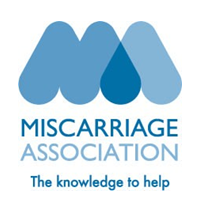
The Miscarriage Association is a national charity offering support and information for those who have been affected by pregnancy loss, as well as raising much-needed awareness of this too often ignored issue. The charity also campaigns for better medical care, and has highlighted the need for full and informed choice regarding clinically appropriate miscarriage management options, in a too often ignored area of reproductive health.
Elizabeth Prochaska and Rebecca Schiller, Birthrights
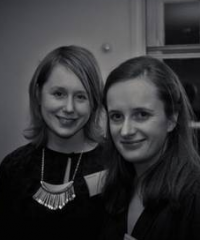
Birthrights was founded in 2013 and is the UK’s only organisation dedicated to improving women’s experiences of pregnancy and childbirth by promoting respect for human rights. Over the last two years, Elizabeth and Rebecca have created a powerful organisation that promotes respect for women’s autonomy. From intervening in a court case around criminalisation of drinking in pregnancy, advising women on their rights to providing training for medical professionals on dignity in childbirth, the organisation puts women’s ability – and right – to make decisions for themselves at the core of all their work. As pregnant women’s autonomy becomes increasingly under attack, Birthrights are an invaluable Champion of Choice. Read Rebecca’s piece on why we need to work together to join up the dots on the reproductive rights spectrum here.
Diane Abbott MP and Caroline Lucas MP
@HackneyAbbott and @CarolineLucas nominated by @extreme_crochet
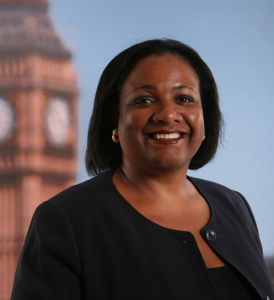
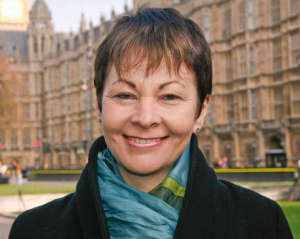 For my Champions of Choice, I nominate Diane Abbott MP and Caroline Lucas MP. Both of these women have tabled Early Day Motions for the creation of abortion clinic buffer zones. They have brought the issue straight to parliament, giving our cause a greater chance of success.
For my Champions of Choice, I nominate Diane Abbott MP and Caroline Lucas MP. Both of these women have tabled Early Day Motions for the creation of abortion clinic buffer zones. They have brought the issue straight to parliament, giving our cause a greater chance of success.
Jane Fisher
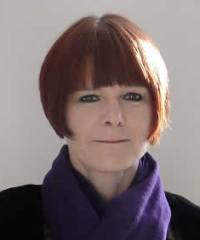
Jane Fisher is the Director at Antenatal Results and Choices, and works hard to provide important support & invaluable non-directive information to expectant and bereaved parents, enabling them to make a choice that is right for them. Through her work at ARC Jane has played a leading role in encouraging policy development and training healthcare professionals in the field of antenatal screening so that parents are provided with the best care and information, so they can make choices based on individual circumstances. Read Jane’s piece on why we need to support women’s pregnancy choices here.
Dr Christian Jessen

Dr Christian Jessen is a doctor, broadcaster and sexual health campaigner who has had a huge impact on raising awareness and de-stigmatising sexual health matters. Through his work on television shows such as Embarrassing Bodies, his newspaper columns and the publication of his books, Christian has provided valuable information and guidance about a range of “taboo” subjects. Christian is a passionate advocate for sexual and reproductive rights and has been involved in many public campaigns, including the Back Off campaign for abortion clinic buffer zones, making him an instrumental Champion of Choice.
Erika Garratt
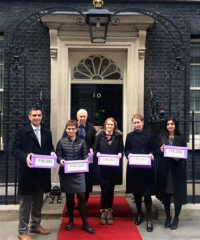
A passionate advocate for women’s right to abortion care, Erika has been at the forefront of the campaign for clinic buffer zones. Erika started a change.org petition in October 2014 after seeing video footage of a pregnant woman confronting anti-abortion protesters, which became an extraordinary success. The petition gained over 120,000 signatures in a matter of months and was critical in raising awareness of the issue with the general public. Erika presented the petition to 10 Downing Street with other members of the Back Off coalition in March 2015, and is continuing to fight the government’s inaction on this issue. Read Erika’s piece on why we need buffer zones to protect a women’s right to choose here.
Patricia Lohr
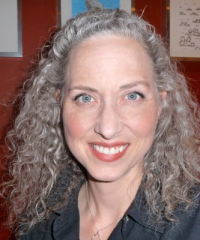
Dr Patricia Lohr is the Medical Director of BPAS. She has made it part of her mission to encourage young doctors to work in abortion care. Patricia set up BPAS’ highly successful Reproductive Health Externship, which gives medical students insight into abortion provision and the women who need it, and has facilitated training for post-graduates unable to obtain sufficient clinical exposure to abortion care in their training programmes. Patricia is also on the Board of Medical Students for Choice whose mission is creating tomorrow’s abortion providers and pro-choice physicians.
Caitlin Dean
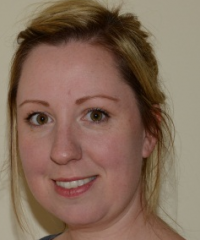
Caitlin Dean is a registered Nurse and chair person for the charity Pregnancy Sickness Support. Caitlin suffered Hyperemesis Gravidarum (HG), severe pregnancy sickness, during her three pregnancies and campaigns tirelessly to improve care, raise awareness and tackle stigma around the condition. She is passionate about ensuring women have access to evidence based information and effective treatment for the condition, writes the popular Spewing Mummy blog, is the co-author of Hyperemesis Gravidarum – The Definitive Guide and has just released her children’s book How to be an HG Hero. Read Caitlin’s piece about the proper support women suffering from HG need here.
Katherine O’Brien, bpas: Let’s Stop Treating Emergency Contraception As A Marker Of Female Irresponsibility
Katherine O’Brien is Media and Public Policy Manager at bpas.
The outcry that followed the decision last month to allow under-16s to buy the emergency contraceptive pill EllaOne was sadly predictable. As a society, we have decided that access to contraception is a good thing, and those women who take their pill regularly are given a pat on the back and awarded the prestigious title of “responsible.”
However, using emergency contraception is seen as a marker of quite the opposite. It’s viewed as a sign of failure, of irresponsibility. It’s a bit dirty, as much a symbol of a drunken one-night stand as sitting on the bus at 7am on a Saturday morning drinking a Lucozade in last night’s glad rags.
Because of the way we view EC, we have created a system that discourages women from using it. While women are able to get EC for free from their GP or local sexual health clinic, that’s not always convenient or indeed possible to do in the necessary time frame. Consequently, many women are forced to purchase it.
To buy EC, women have to jump through a series of hoops that we would never dream of putting in place for any other kind of medication with similar levels of safety and efficacy. Once you have found a pharmacists willing to sell it to you (not always an easy task), there’s the dreaded consultation. During this nice, informal chat with your pharmacist, you may be asked a range of rather pointless questions from how many times you’ve taken EC to if you had been drinking at the time of the “incident” (yes, that is a real thing that a real pharmacist asked a real woman.) While a discussion about contraception etc might be useful for some, it’s not medically necessary. So in the absence of clinical need, any conversation should be optional. To require a woman to discuss the last time she had an STI test in a not-exactly-soundproof curtained cubicle on the pharmacy shop floor only adds to a sense of embarrassment and shame.
Once you have completed the consultation, there’s the small matter of a rather large price tag. One can’t escape the feeling that the high cost (up to £40) is a way of communicating to women that this really isn’t something they should be doing – and certainly not on a regular basis (at least not without a massive overdraft.)
We have created a system which tells women who need EC that they have done something “wrong”, and made it ridiculously difficult to buy. Yet any move every move to make EC more accessible is roundly criticised. When, in 2014, new guidance was issued stating that under-25s should be allowed to keep EC at home and get it for free, a moral panic ensued, with warnings of young women running wild and having unprotected sex morning, noon, and night (when there was nothing good on Netflix, I presume.)
Nick Clegg, who has been nominated as a Champion of Choice, passionately rejected this view. In an interview at the time, Clegg stated that “women shouldn’t be told ‘We are not going to give you the freedom to buy something from a chemist because we don’t trust how you will behave sexually’. It’s a Victorian – worse than that, medieval – approach to women.”
And really, that is what our current treatment of EC is based on: patronising and sexist assumptions about women. And we need to challenge this. So let’s put it on the shelves, make consultations optional, and price it at a level that reflects what it is: a cheap to make and safe to take method of contraception. If we trust women, we should trust women with EC.
